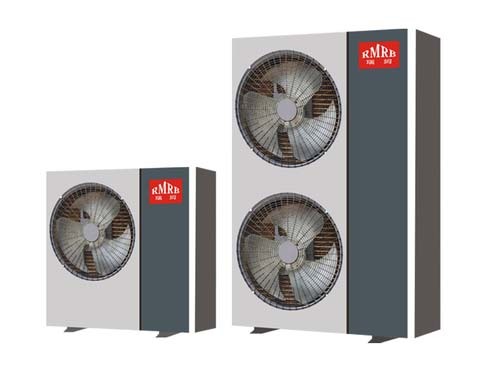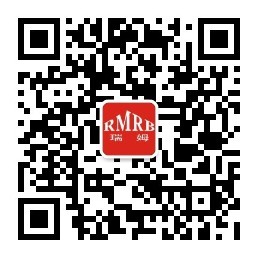Success Stories
Clean heating how to make the people can afford it? Many places extend running subsidies
Published on:
2023-04-20
Recently, the Ministry of Finance issued the "Notice on Issuing the Fund Budget for Air Pollution Prevention and Control in Advance in 2021". The attachment specifies the list of pilot cities and the amount of funds for the 2021 winter clean heating pilot subsidy funds in the northern region. In 2021, a total of 7.34 billion clean heating pilot subsidy funds will be arranged. Yuan.
In recent years, clean heating methods such as "coal to electricity" have played an important role in reducing air pollution in winter. Behind this is the tens of billions of dollars invested by the central government and nearly three times the subsidy bonus of the local government. According to relevant documents, the subsidy will last for three years. After three years, if there is no additional renovation task, the central financial subsidy will be withdrawn, and the local government will bear the subsidy by itself. At present, some cities have extended the subsidy policy for clean heating operation to reduce heating costs for users and ensure long-term operation of clean heating.

Jilin
The Jilin Provincial Department of Finance announced the "Shortlist of Pilot Cities for Electric Clean Heating Education Demonstration Counties in 2021". The shortlisted pilot cities will be given a fixed subsidy. In principle, each city (state) supports 12 million yuan, and each county (city) supports 8 million yuan. Based on this calculation, the eight pilot projects will receive a total of 72 million yuan in financial support.
Hebei
The Hebei Provincial Department of Finance recently issued the "Notice on the Advance Release of the 2021 Central Air Pollution Prevention and Control Fund (for the Clean Heating Pilot Program in Northern China) Budget" , involving a total of 1.36 billion yuan in the six cities of Handan, Xingtai, Cangzhou, Zhangjiakou, Dingzhou, and Xinji. Allocation of subsidy funds for clean heating pilot cities in winter. After the current operation subsidy expires, the provincial subsidy will be subsidized for another 2 years, in order to consolidate the achievements of rural clean heating transformation and promote the sustainable development of clean heating.
Jinan
The "Notice of the General Office of the Jinan Municipal People's Government on Clarifying the Subsidies for the Operational Funds of Household Clean Heating in Winter in Our City" clearly extends the period of operating subsidies to the heating season of 2022-2023. Proportional responsibility. Electric heating subsidy policy: For users who use electric heating, according to the standard of 1,200 yuan per household, within one month before the heating period, electricity will be purchased uniformly by village (residential) unit and charged into the user's electric card.
Tianjin
The "Notice on the Relevant Operational Policies for Clean Heating of Residents in Winter in Tianjin from 2020 to 2023" further clarifies the subsidy policy for residents' winter heating operation. The notice pointed out that under the "coal-to-electricity" operation policy, the tiered electricity price will no longer be implemented during the heating period, and the low-peak electricity price of 0.3 yuan/kWh will be implemented from 20:00 to 8:00 the next day. At the same time, a subsidy of 0.2 yuan/kWh is given, with a maximum subsidy of 8,000 kWh/household.
Shanxi
The "Notice of the Shanxi Provincial Development and Reform Commission on the Price of "Coal to Electricity" and Related Matters in Our Province from 2019 to 2021" stipulates that residents' coal to electricity will implement an independent heating electricity price policy, among which heating electricity will be divided into separate meters Pricing users can apply for three modes: the peak and valley period pricing method, the electricity consumption measurement method, and the flat electricity price pricing method.
For users who implement peak-valley pricing and whose voltage is less than 1 kV, the electricity price is 0.2862 yuan/kWh during the period from 8:00 p.m.
For users who implement the electricity consumption measurement method, the electricity price is 0.2862 yuan/kWh within the electricity consumption quota, and 0.507 yuan/kWh if the electricity consumption exceeds the quota. Among them, electricity consumption = 2600 kWh/month × heating month in heating season;
Users who adopt the flat-segment electricity price pricing method are not limited by peak and valley and electricity quotas, and the electricity price is unified at 0.477 yuan/kWh;
For users who do not implement sub-meter metering for heating electricity and domestic electricity consumption, the monthly average domestic electricity consumption from August to September is used as the basic electricity, and the excess part is regarded as heating electricity consumption, and the electricity price for heating electricity consumption is calculated according to the sub-meter. The quantity measurement method is implemented, that is, within the specified amount of electricity consumption, the electricity price is 0.2862 yuan/kWh, and if it exceeds the amount, the electricity price is 0.507 yuan/kwh.
Yuncheng
The "Yuncheng 2020 Winter Clean Heating Work Implementation Plan" pointed out that during the three-year demonstration period (August 2018-July 2021) of the Yuncheng Winter Clean Heating Pilot City , the following subsidy standards will be implemented:
(1) "Coal to electricity" projects in central urban areas and counties. The one-time renovation subsidy of municipal finance is 2,000 yuan/household, and the one-time renovation subsidy of county-level finance is 2,000 yuan/household.
(2) Rural "Coal to Electricity" project. The city-level fiscal one-time renovation subsidy is 2,100 yuan/household, and the county-level fiscal one-time renovation subsidy is 2,500 yuan/household.
Xinzhou
"Xinzhou 2020 Clean Heating Work Implementation Plan" pointed out:
(1) The indoor heating facilities are remodeled by the resident users themselves, and the district finance will give a one-time subsidy of 1,000 yuan/household after the village organization has passed the inspection by the office.
(2) Provide loss subsidies to heating enterprises (the current standard for residential users is 12.5 yuan/square meter/one heating period). The payment time is 50% before the start of heating every year, 30% after one full month of heating, and the remaining 20% after the end of heating according to the heating quality evaluation results.
Xianyang
For residential users who have implemented clean heat sources and pledged not to use scattered coal for heating, each heating season (November 15 to March 15 of the following year) in Xianyang City will be based on the actual electricity, gas and biomass fuel consumption per household The amount of subsidy is provided, and the upper limit of subsidy for each household is 500 yuan/year. The subsidy funds are only used as subsidies for the purchase of electricity, gas and biomass fuels that meet environmental protection requirements, and no cash is issued. Among them, during the heating period, the electricity subsidy is 0.2 yuan per kilowatt-hour, and the maximum subsidy for each household is 2,500 kilowatt-hours.
Baoji
Rural clean heating subsidies:
(1) Subsidy for equipment purchase and installation: A one-time subsidy will be given to the cost of initial installation and equipment purchase that meets the requirements of the replacement standard. An alternative way to enjoy the subsidy.
(2) Operating cost subsidy: For rural households who have completed the rural clean energy substitution transformation, signed the "Farmer Clean Energy Alternative Agreement" and actually operated it, they can choose a subsidy method to provide operating cost subsidies. The subsidy standard is 300 yuan per household per year, and the subsidy time limit is tentatively scheduled to end from the end of October 2019 to the end of October 2022.
(3) Farmers who meet the clean energy substitution standards can apply to enjoy the peak-valley electricity price policy.

In the list of the first batch of clean heating pilot cities in 2017, a total of 12 cities including Tianjin, Shijiazhuang, Tangshan, Baoding, Langfang, Hengshui, Taiyuan, Jinan, Zhengzhou, Kaifeng, Hebi, and Xinxiang were shortlisted, which also means that in 2020 The three-year demonstration period of the above-mentioned 12 cities has expired and is about to face the final settlement at the end of the demonstration period. Based on this, Tianjin issued the "Notice on Extending the Implementation of the City's Residents' Winter Clean Heating Operation Policy", stating that the extension of the clean heating subsidy and heating subsidy will start from November 2020 to March 2023, becoming the first public announcement in the country Cities that want to extend the winter clean heating subsidy policy.
In addition, Jinan's new policy clarifies that the operation subsidy policy for distributed clean heating will continue to the heating period of 2022-2023. Some professionals pointed out that the policies of the two cities only continue to subsidize the operation. In contrast, Tangshan, Hebei issued the "Notice on Matters Concerning Clean Heating Fiscal Subsidy Policies in Rural Areas" in November 2019, which stated that operating subsidies will be phased out in three years.
Other Ninetowns have not yet made clear follow-up policies. In addition, Handan, Xingtai, Zhangjiakou, Cangzhou, Yangquan, Changzhi, Jincheng, Jinzhong, Yuncheng, Linfen, Luliang, Zibo, Jining, Binzhou, Dezhou, Liaocheng, Heze, Luoyang, Anyang, Jiaozuo, Puyang, Xi'an, Xianyang, etc. 23 cities were selected as the second batch of pilot cities in 2018, and 2020 is the last year of the demonstration period. Today in 2021, these cities will also face the final assessment.
According to industry sources , although some clean heating subsidy policies expire or are about to expire, they will not be easily reversed in a short period of time. It is estimated that it will take 7 years to be completely cancelled. It is recommended that the subsidy can be gradually reduced in a cycle of 2 years.
------|The content of this article comes from the Internet, sponsored by "Heat Pump Industry Information"


